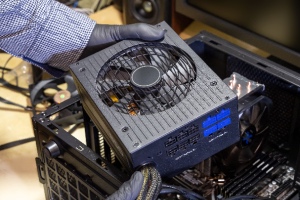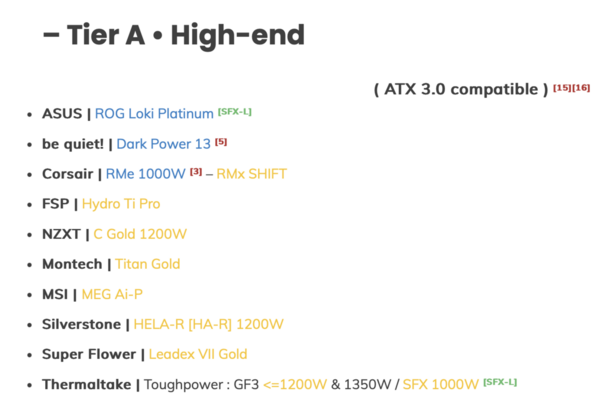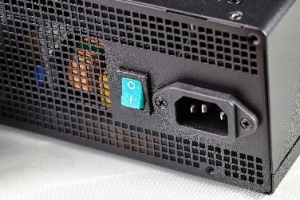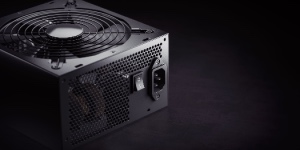
The power supply unit tier list helps you choose the best options for your gaming setup.
More...
Selecting the correct power supply unit (PSU) in computer hardware can be challenging due to numerous options.
To emphasize its importance, the PSU is a critical component that impacts your system's performance and longevity.
Interestingly, a PSU tier list simplifies this decision by ranking units based on performance, reliability, and efficiency.
As a result, understanding PSU tiers helps you choose the right one for your setup effectively.
Before diving into tier lists, it's essential to understand what a power supply unit is.
A PSU is essential to every computer system, as it transforms electrical energy from the wall outlet into functional power for the computer's components.
Understanding wattage for gamers is crucial, as it determines the PSU's capacity to support high-performance gaming rigs effectively.
Moreover, a reliable PSU can help your computer function optimally.
An appropriate PSU is crucial when assembling your custom rig, ensuring optimal performance and longevity.
In the following sections, we'll examine this subject more thoroughly to gain a comprehensive understanding.
This post will explore the comprehensive Power Supply Unit tier list, providing valuable insights into the various categories and rankings of power supply units.
What Are Power Supply Unit Tier Lists?
The power supply unit tier list is a classification system enthusiasts and experts use to rank PSUs based on their quality, efficiency, and reliability.
Tier lists provide a structured way to evaluate the myriad of PSUs on the market.
At their core, these tiers serve as guides, empowering buyers to navigate the complexities of PSU selection by providing a general idea of what to expect regarding performance and durability.
PSU tier lists categorize power supplies based on their quality, performance, and reliability. These lists are typically created by experts who thoroughly test and analyze various PSU models.
Here’s a breakdown of the common tiers:
Tier S (Elite)
•Top-of-the-line PSUs with exceptional build quality and performance
•Highest efficiency ratings (80 Plus Titanium or Platinum)
•Superior voltage regulation and ripple suppression
•Extended warranties (often 10+ years)
Tier A (High-End)
•Excellent quality PSUs suitable for high-performance systems
•80 Plus Gold or better efficiency ratings
•Very good voltage regulation and ripple suppression
•Long warranties (usually 7-10 years)
Tier B (Mid-Range)
•Good quality PSUs for mainstream builds
•Typically 80 Plus Bronze or better efficiency
•Decent voltage regulation and ripple suppression
•Warranties often around 5-7 years
Tier C (Entry-Level)
•Acceptable for basic systems with low power requirements
•Usually 80 Plus White or Bronze efficiency
•Adequate voltage regulation and ripple suppression
•Shorter warranties (3-5 years)
Tier D (Avoid)
•Low-quality PSUs with potential reliability issues
•Poor efficiency and performance
•May lack essential safety features
•Short or no warranty
PSU Tier List Importance
In computer hardware, selecting the suitable power supply unit (PSU) and understanding its operation is pivotal for maintaining system stability and performance.
On the flip side, while PSU tier lists provide valuable insights into choosing high-quality units, recognizing signs of PSU failure ensures your setup remains efficient and reliable.
While maintaining your system's power supply is crucial, repurposing defunct computer components can contribute to sustainable tech practices and potentially offer unexpected value.
To sum up, combining knowledge from PSU tier rankings with an awareness of potential issues allows you to make informed decisions that support your computing needs and safeguard against disruptions.

Image Source: CULTISTS NETWORK
47 Power Supply Unit Tips (1-10) | |
|---|---|
1 | Don't skimp on your PSU – it's the heart of your system. |
2 | Exclusively purchase PSUs from trusted manufacturers and certified distributors. |
3 | Check the PSU's operating temperature range – higher is better for longevity. |
4 | Consider a PSU with a fanless or hybrid fan mode for quiet operation at low loads. |
5 | Ensure proper airflow in your case to keep the PSU cool. |
6 | Regularly clean dust from your PSU's intake and exhaust. |
7 | Avoid daisy-chaining PCIe power cables for high-end GPUs. |
8 | Keep your PSU's firmware updated if it supports updates. |
9 | Consider a PSU with digital interfaces for monitoring via software. |
10 | Don't mix modular cables from different PSU models or brands. |
47 Power Supply Unit Tips (11-21) | |
|---|---|
11 | Check the length of the PSU cables to ensure they reach all components in your case. |
12 | For multi-GPU setups, calculate power requirements carefully and choose a higher-tier PSU. |
13 | Consider a PSU with low ripple for overclocking stability. |
14 | Look for PSUs with high-quality fan bearings for longevity. |
15 | Check if the PSU has a single 12V solid rail or multiple 12V rails. |
16 | Look for SFX or SFX-L PSUs from reputable brands for small form factor builds. |
17 | Consider future upgrades when choosing your PSU's wattage. |
18 | Look for PSUs with flat, ribbon-style cables for easier cable management. |
19 | For high-end builds, consider PSUs with digital control and monitoring features. |
20 | Avoid using adapters to convert connectors – use native cables when possible. |
21 | Check the PSU's hold-up time – longer is better for system stability during brief power interruptions. |
47 Power Supply Unit Tips (22-30) | |
|---|---|
22 | For professional workstations, consider redundant PSU setups for maximum reliability. |
23 | Look for high-efficiency PSUs at low loads for systems that idle frequently. |
24 | Check the PSU's MTBF (Mean Time Between Failures) rating – higher is better. |
25 | Consider the PSU's acoustic performance if you're building a quiet system. |
26 | For water-cooled builds, ensure the PSU can handle the additional load of pumps and fans. |
27 | Check if the PSU has over-temperature protection (OTP) for added safety. |
28 | Opt for a PSU with superior energy efficiency if you reside in an area with high electricity costs. |
29 | Regularly monitor your PSU's performance using software tools or hardware monitoring devices. |
30 | Refer to PSU tier lists and quality rankings to identify reliable units for optimal performance and efficiency. |
47 Power Supply Unit Tips (31 - 39) | |
|---|---|
31 | Target PSUs ranked as top performers for high-end system configurations. |
32 | Evaluate thermal performance in PSU efficiency guides to avoid system overheating issues. |
33 | Search for PSUs with 80 Plus certifications for optimal performance. |
34 | Check the PSU's amperage on the +12V rail to ensure it can handle high-performance components like GPUs. |
35 | Ensure the PSU has over-voltage, under-voltage, over-current, and short-circuit protection features. |
36 | Consider PSUs with eco-friendly features if you are environmentally conscious. |
37 | Utilize customer reviews reflected in PSU reliability rankings to gauge dependability. |
38 | Compare wattage requirements with the PSU wattage classification system to ensure compatibility. |
39 | Check for warranty offerings before purchasing. |
47 Power Supply Unit Tips (40 - 47) | |
|---|---|
40 | Modular PSUs allow for easier cable management by letting you detach unused cables. |
41 | Ensure the PSU has enough connectors for all your components, including PCIe, SATA, and CPU power connectors. |
42 | Verify the PSU's form factor compatibility with your computer case dimensions. |
43 | Use surge protectors or an uninterruptible power supply (UPS) to protect your PSU from power surges. |
44 | Match the PSU's input voltage setting to your region's electrical standard (110V/220V). |
45 | For gaming PCs, consider PSUs with higher wattage and better cooling solutions to handle demanding games. |
46 | Calculate your total system power consumption using online calculators before purchasing a PSU. |
47 | Remember that not all PSUs are compatible with all motherboards; verify compatibility first. |
Why Does the Power Supply Tier List Matter?
Consulting a comprehensive power supply unit tier list helps users make informed decisions when selecting PSUs.
Choosing a PSU from a higher tier can offer several benefits:
1. Reliability: Higher-tier PSUs are generally more reliable and less likely to fail under stress.
2. Efficiency: This indicates the effectiveness of a PSU in transforming alternating current (AC) from your electrical outlet into a direct current (DC) suitable for your computer.
These units typically feature superior efficiency ratings, which allows them to use less energy and produce less heat, ultimately making them more eco-conscious and economically beneficial.
3. Longevity: A quality PSU can extend the lifespan of your entire system by providing stable power delivery. High-quality materials and construction techniques contribute significantly to a PSU's longevity and performance.
4. Protection Features: High-tier PSUs typically include advanced protection features like over-voltage protection (OVP), under-voltage protection (UVP), over-current protection (OCP), and short-circuit protection (SCP).
5. Modularity: Fully modular or semi-modular PSUs enable streamlined cable routing and enhanced thermal efficiency within your system enclosure.
6. Voltage Regulation: A good PSU maintains stable voltages under varying loads. Look for PSUs with tight voltage regulation (±3% or better) on the 12V rail.
7. Ripple Suppression: Lower ripple (AC noise) on DC outputs ensures cleaner power delivery to components. Quality PSUs typically keep ripple under 30mV on the 12V rail.
8. Build Quality: High-quality capacitors (Japanese brands are often preferred), solid soldering, and robust internal components contribute to longevity and reliability.
The Power Supply Unit Tier List System Explained
While there isn't an official industry standard for PSU tiers, most enthusiasts refer to community-driven tier lists that categorize PSUs into different levels based on various factors.
Building upon our earlier breakdown of PSU tiers, let's explore how these categories translate into real-world performance and suitability for different system builds.
Tier 1: Best of the Best
These are top-of-the-line PSUs known for exceptional build quality and performance.
Characteristically, they offer high efficiency (usually 80 Plus Gold or Platinum) and robust protection features.
Undoubtedly, they are ideal for high-end gaming rigs or workstations that require stable power delivery.
Tier 2: Excellent Quality
Tier 2 units provide excellent performance but may lack some premium features found in Tier 1.
Nevertheless, they are still highly efficient, reliable, and suitable for most gaming setups.
Interestingly, these units provide great value while maintaining quality and perfect features if you're building mid-range systems but still want assurance against potential issues down the line.
Tier 3: Good Quality
These PSUs offer good value for money and decent performance.
Primarily, they are suitable for budget builds or systems that don't demand extreme power requirements.
These models need more advanced features found in higher tiers.
Yet, they remain adequate choices when working within tighter budgets while maintaining reasonable expectations regarding longevity and reliability.
Tier 4: Basic Quality
Tier 4 units are entry-level PSUs that may suffice for essential home workspace.
However, they might lack advanced protection features and have lower efficiency ratings.
Tier 5: Avoid If Possible
These are low-quality units that often compromise on safety and reliability. Generally, it's best to avoid these unless necessary due to budget constraints.
Best Practices for Choosing the Best Power Supply
When selecting a PSU, consider the following factors:
Power Requirements: Discern your system's total wattage requirement using online calculators or consulting component specifications.
Determine wattage requirements based on intended usage scenarios (e.g., gaming vs productivity tasks).
Future Upgrades: If you upgrade components like your GPU or CPU, opt for a higher-wattage PSU within a better tier.
Budget Constraints: Factor budget constraints accordingly while remaining mindful of potential future upgrades/expansions planned further along the timeline!
Although budget-friendly choices may be appealing, choosing a reliable PSU can protect your investment and help you avoid costly hardware issues.
Efficiency Ratings: Look for units with at least an 80 Plus Bronze rating; higher tiers usually offer Gold or Platinum ratings.
Selecting an efficient PSU mirrors the cost-saving strategy of choosing compatible printing solutions for your home office setup. This approach ensures optimal performance while effectively managing expenses.
Consider Your Use Case: For high-end gaming rigs or workstations, aim for Tier A or S. For general-purpose builds, Tier B can be sufficient.
Check Compatibility: Ensure the PSU fits your case and has the necessary connectors for your components. For modern GPUs, look for PSUs with PCIe 5.0 compatibility and the new 12VHPWR connector.
Read Reviews: Look for professional reviews that include thorough testing of voltage regulation, ripple suppression, and overall performance.
Warranty and Support: A longer warranty often indicates the manufacturer's confidence in their product. Good customer support can be crucial if issues arise.
Moving forward, it's crucial to research warranty and support policies manufacturers offer before finalizing any purchase decisions.
Popular Brands and Their Offerings
When it comes to brand selection, consider using brands like Corsair AX1600i or Seasonic Focus PX-650 for reliability.
Corsair: Known for its innovative designs and robust engineering practices, which result in exceptional products across multiple price points.
Seasonic: Renowned industry-wide due mainly to its impeccable reputation surrounding customer service.
Furthermore, the company is known for employing superior manufacturing standards throughout production.
EVGA: Offers a comprehensive range covering everything from entry-level basics to enthusiast-grade solutions, ensuring something available no matter what type of user might require at any moment!
Enhancing System Stability with Quality PSUs
Investing in high-quality PSUs like the Corsair AX1600i or Thermaltake Toughpower GF3 ensures better performance and reliability.
These units boast superior features like Japanese capacitors, modular cables, and high-efficiency ratings.
Thus, such components reduce risks associated with voltage fluctuations and ensure consistent operation under various loads.
Detecting Indicators of a Failing Unit
First and foremost, recognizing the signs of a malfunctioning power supply is crucial to safeguard your PC components from potential harm.
Look out for power-on fails, intermittent lock-ups, or spontaneous rebooting. These can indicate a malfunctioning power supply.
If you notice unusual noises or fan failure, it might be time for a replacement.
In addition, if the motherboard's LED light indicates issues, investigate the PSU (Power Supply Unit). Regular checks can avert potential hardware damage and ensure system stability.
When dealing with power supply unit problems, it's essential to recognize the symptoms early.
A failing power supply can lead to unexpected shutdowns or system instability.
To emphasize, be attentive to indicators such as excessive heat, unpredictable sounds, or any noticeable damage, including smoke emanating from the power supply unit.
Thus, these indicators often point to a malfunctioning power supply that needs immediate attention to prevent further hardware damage.
The Role of a Power Supply Unit (PSU)
Understanding what a power supply unit does involves recognizing its role in converting AC to DC power. This process ensures that all PC components receive stable electricity.
Building on this concept, a reliable PSU regulates voltage, preventing fluctuations that could lead to system instability or even fire hazards.
As a natural progression, voltage regulation and energy efficiency contribute to overall system performance.
To emphasize its importance, investing in a high-quality PSU with appropriate wattage ensures efficient operation and longevity of your computer system.
Knowing what a PSU does helps you select the right one for your setup, especially if you own a gaming PC or require specific wattage and efficiency levels.

Ensuring Efficient Power Supply Operation
Maintaining an efficient PSU involves checking its frequency and ensuring it meets UL-listed/recognized safety standards.
High-efficiency ratings like 80 PLUS indicate better energy conversion, reducing heat generation, and enhancing performance.
As part of routine maintenance, regularly inspect cables for loose connections or reversed polarity that could impede function.
Therefore, implementing these practices ensures optimal operation and prevents equipment damage.
Common Power Supply Unit Problems
Experiencing power supply unit problems can disrupt your computing experience.
Overheating is among the most prevalent issues due to inadequate cooling fans or transient power spikes causing random shutdowns.
Similarly, an underpowered PSU may struggle with high-demand gaming PC tasks, leading to performance drops or system crashes.
As a practical solution, consider using modular PSUs that allow better cable management and airflow.
Regular maintenance and monitoring can prevent costly repairs and enhance the longevity of your IT hardware components.
Identifying CPU vs Power Supply Issues
Distinguishing between signs that the Central Processing Unit (CPU) is dying vs. the power supply, what the power supply unit does, and power supply unit problems requires keen observation of specific symptoms.
On the one hand, while a failing CPU may cause frequent Blue Screen of Death (BSOD) errors, it can overheat for no obvious reason, leading to processing delays and system crashes.
Conversely, PSU issues often manifest as electrical shocks, smoke from the unit, random shutdowns, or failure to boot.
Therefore, understanding these distinctions aids in accurate diagnosis and efficient troubleshooting, helping to prevent unnecessary replacements.
Troubleshooting Common Power Supply Problems
Effective troubleshooting of PSU issues starts with checking connections and ensuring all components are securely attached.
Moving on to practical tools, utilize tools like a PSU calculator for accurate wattage estimation, and fortify your setup with a voltage guardian to shield against electrical anomalies.
To round off this advice, we recommend performing regular maintenance to help prevent equipment damage and prolong your system's lifespan.
Emerging Trends in PSU Technology
The PSU market is constantly evolving. Here are some trends to watch:
1. ATX 3.0 and PCIe 5.0 Compatibility: New standards are emerging to support increasingly power-hungry GPUs.
2. GaN (Gallium Nitride) Technology: This new semiconductor material enables more efficient and compact PSUs.
3. Smart PSUs: Units with built-in monitoring and control features are becoming more common.
4. Sustainability: Manufacturers are focusing on eco-friendly designs and packaging.

In the Final Analysis
Comprehending PSU tiers and identifying potential power supply issues is essential for building or upgrading a robust computer system.
Building on this foundation, consulting a reputable power supply unit tier list can help you make informed decisions about PSU quality.
As a natural progression, selecting a PSU from an appropriate tier optimizes performance and prevents potential hardware failures.
Moreover, distinguishing between CPU and PSU problems enables accurate troubleshooting, ensuring system longevity.
Above all, always prioritize quality over cost when choosing a PSU, as this component is crucial in maintaining overall system health.
On the practical side, investing in high-efficiency PSUs with adequate wattage and robust features, such as Japanese capacitors, will enhance reliability and protect against voltage fluctuations.
Whether you're building a high-end gaming rig, a professional workstation, or a budget-friendly home PC, there's a PSU tier that's right for you.
Take the time to research and select a PSU that not only meets your current needs but also allows for future upgrades and ensures the long-term reliability of your system.
To wrap things up, stay proactive in monitoring your hardware's condition to enjoy uninterrupted performance from your trusted technology partner.


